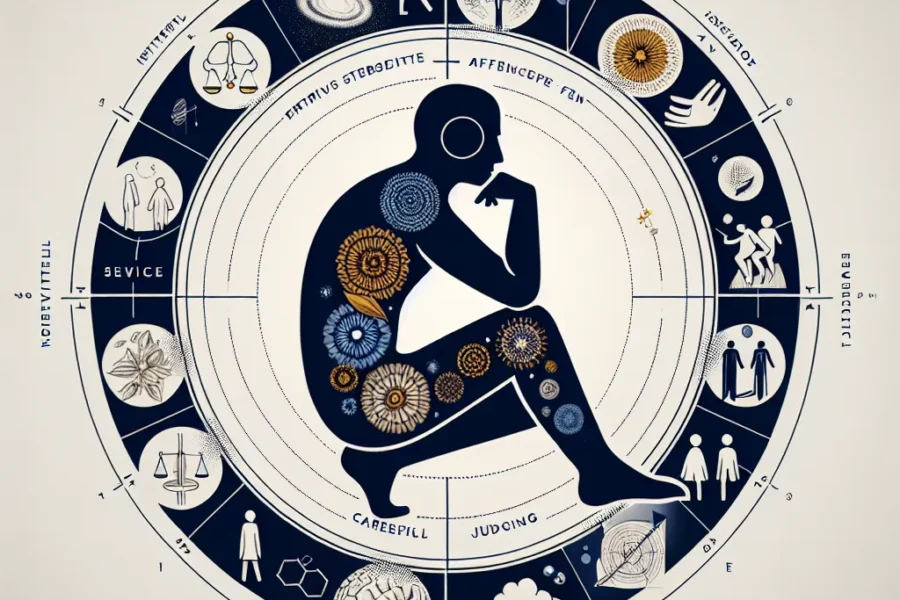ISTJ (Introverted, Sensing, Thinking, Judging) is one of the 16 personality types categorized by the Myers-Briggs Type Indicator (MBTI). People with this personality type are often described as responsible, practical, and reliable. This article delves deep into the quirks and characteristics that define ISTJs, providing insights into their working style, communication habits, relationships, and personal growth strategies.
Understanding ISTJs: The Foundations
ISTJs are known for their methodical approach to life. They have a strong focus on details and a penchant for organization. Driven by introverted sensing (Si), ISTJs prefer to rely on past experiences to guide their decisions, ensuring they adhere to tried-and-tested methods. Consequently, they tend to be traditionalists who respect historical perspectives and value consistency.
At work, ISTJs exhibit remarkable levels of dedication and perseverance. Their thinking (T) trait means they approach problems with a logical and critical perspective, often excelling in roles that require precision and attention to detail. Being judgers (J), ISTJs value structure and prefer environments where rules and expectations are clear. This facilitates their ability to plan ahead and execute tasks with exceptional efficiency.
ISTJ Communication Style
ISTJs communicate in a straightforward and direct manner. They value honesty and clarity, seeing no need for superfluous talk or embellishments. Their communication is typically succinct and to the point, reflecting their preference for practicality over emotion. ISTJs believe in speaking the truth, even when it’s uncomfortable, making them reliable, if sometimes blunt, communicators.
In their interactions, ISTJs also exhibit a preference for written communication due to its structured and unambiguous nature. This allows them the time to organize their thoughts and convey their messages accurately, which aligns with their preference for order.
ISTJs in Relationships
While ISTJs may not be the most overtly expressive individuals, they demonstrate love and care through their actions. Loyalty is a hallmark of the ISTJ personality, and when they commit to a relationship, whether romantic, friendly, or familial, they take their commitments seriously. ISTJs show affection by ensuring the practical needs of their loved ones are met, often going the extra mile to provide support and stability.
However, due to their reserved nature, ISTJs may sometimes struggle with emotional expression and may appear withdrawn or aloof. They may find it challenging to understand the emotional needs of others, which can lead to miscommunications and misunderstandings in relationships. Nevertheless, ISTJs value harmony and are willing to work on overcoming these challenges to maintain strong, stable bonds.
ISTJ Strengths and Growth Opportunities
ISTJs are known for several key strengths, including:
1. Dependability: ISTJs are the epitome of reliability. Others often look to them to fulfil commitments and follow through on promises.
2. Organization: Their knack for organization makes them adept at keeping both their surroundings and plans well-structured.
3. Practicality: A strong sense of practicality allows ISTJs to find realistic solutions to complex problems.
4. Detail-oriented: Their attention to detail ensures no aspect of a project or task is overlooked.
However, ISTJs also have areas where they can grow, such as:
1. Flexibility: ISTJs can struggle with adapting to new and unforeseen situations due to their reliance on established methods.
2. Emotional sensitivity: They might need to develop a greater capacity for empathy and understanding of emotional nuances.
3. Openness: Being more open to new ideas and unconventional thinking can help ISTJs become more innovative.
ISTJs and Career Choices
ISTJs thrive in careers where they can apply their organizational skills and strong work ethic. They are well-suited for roles in administration, law enforcement, accounting, and management, among others. Their attention to detail makes them excellent in positions that require accuracy, such as data analysis or logistics.
The ISTJ’s affinity for structure makes careers with clear hierarchies and traditional paths to advancement particularly appealing. Additionally, ISTJs may find satisfaction in roles that allow them to serve society and uphold institutions, reflecting their respect for established systems.
Personal Growth for ISTJs
For ISTJs looking to grow personally, here are some strategies that can be effective:
1. Embrace change: By challenging themselves to try new things and being open to different perspectives, ISTJs can become more adaptable.
2. Develop emotional intelligence: Working on understanding and responding to the emotions of others can improve ISTJs’ relationships.
3. Cultivate creativity: Engaging in creative pursuits can help ISTJs break from routine and explore innovative solutions.
4. Seek feedback: Listening to constructive criticism can provide ISTJs with valuable insights into their behavior and impact.
Conclusion
ISTJs are an integral part of any team or community they belong to, offering stability, reliability, and practical wisdom. By leveraging their natural talents and working on their areas for growth, ISTJs can continue to realize their full potential. Whether in the workplace, in relationships, or in personal development, ISTJs have much to contribute and many opportunities for enrichment. Understanding these insights about the ISTJ personality type can help individuals harness their strengths and navigate their challenges more effectively, leading to a more fulfilling life.



Leave a Comment